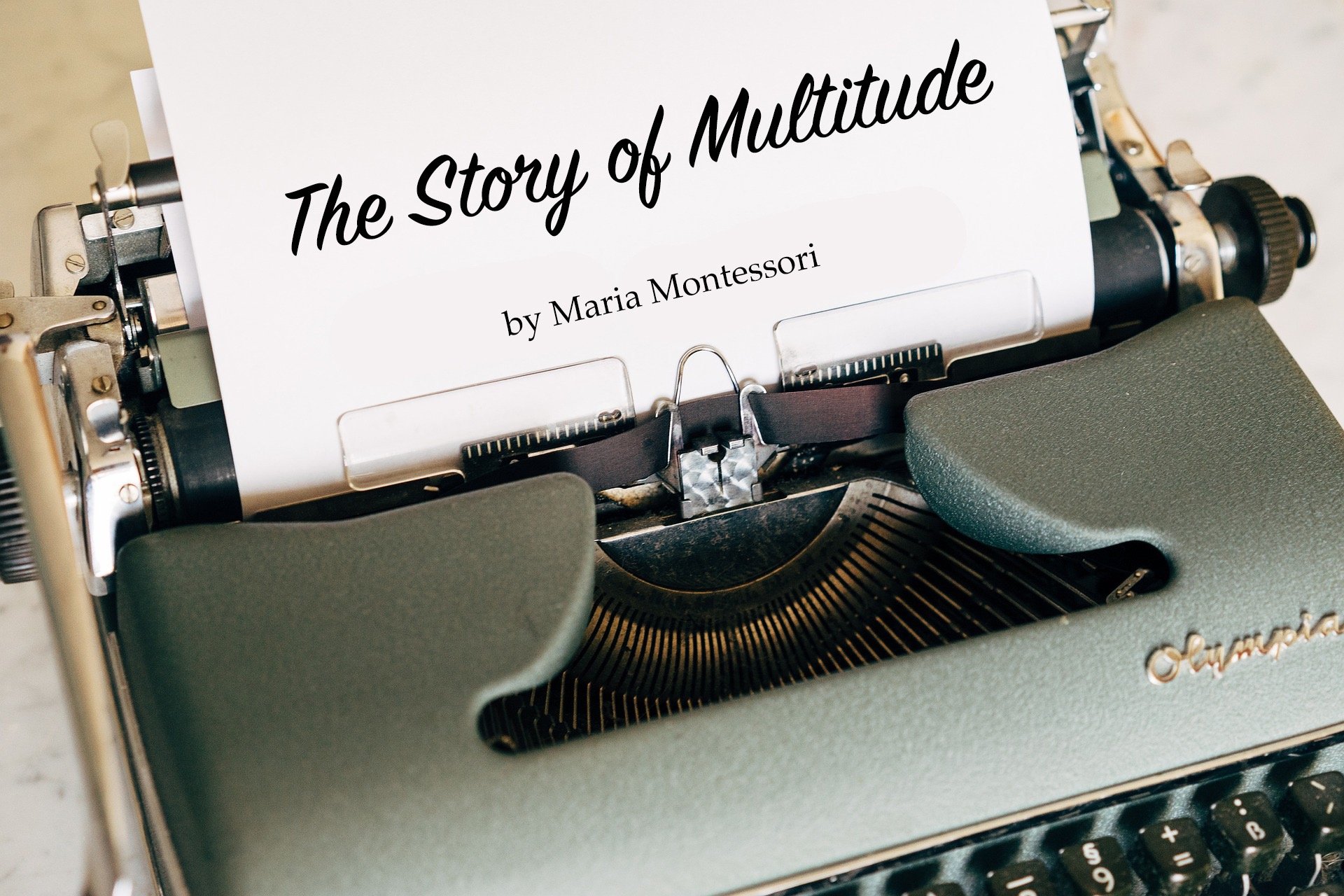The Story Of The Multitude ✨🔤 by Maria Montessori
🔤 A story rooted in the Chapter - Words Have Jobs to Do and Places to Be in the Language Album. ✨📖 The Story of the Multitude by Maria Montessori is part of a larger journey of discovering the function of nouns and their power in shaping human understanding. Naming stories, like this one, help children explore how people have always used words to organize, describe, and give meaning to the world around them. 🌍🔠 From the moment a child begins to speak, they embark on their own quest of naming—pointing, asking, and collecting words. This mirrors the first humans, who named their surroundings to survive and communicate. The noun, the foundation of language, is a link between past and present—a stable force that has carried knowledge through generations. Just like the pyramid, chosen as its symbol, the noun is solid, unchanging, and essential to human thought. ⏳🏛️
LANGUAGE STORIES
3/18/20253 min read


Imagine you are at a birthday party. 🎉 You see a BIG bowl of popcorn 🍿—not just a few pieces, but SO MANY that you can’t even count them all! That’s a multitude of popcorn! Now think about the stars in the sky 🌟✨. There are too many to count! That’s a multitude of stars! What about all the books in a library 📚? There are thousands of them! That’s a multitude of books! The words we use every day are also a multitude! Every day we use SO MANY words to name everything around us. Today, I’m going to tell you the story of the multitude of names.
All things around us have a name: people 👨👩👧👦, countries 🌍, and the things we make 🏗️. Everything in nature—stones 🪨, plants 🌿, and animals 🦁—also has a name. When people learned to travel on water ⛵, they gave names to every type of boat they made 🚢 and even named each part of it. And when they sailed into storms 🌊⛈️, facing dangers ⚠️, they named those too! When they saw lightning ⚡, heard thunder 🌩️, or felt the wind 💨, they gave each one a name.
When people met wild animals 🐅🐍, they gave them names too ! They named all of their movements 🏃, their shape , their body cover and even their cries.😱
People also named things they could not see—like their feelings. When they felt love 💖, loneliness, or comfort 🤗, each emotion got its own name. If people became stronger 💪, braver, or smarter 🏅, they found words for those feelings too.
Each new invention, each discovery, and each new idea—everything was given a name. 🏆
And when people used a lens 🔍 to see tiny things invisible to the eye 👀, they named everything they discovered! The lens had a name, the tool invented to see this world was named too - the microscope 🔬 had a name, and every little thing they saw 🦠 got a name.
Even though people from the past grew old and passed away, their names and their discoveries stayed with us. Their ideas lived on, just like the tales and stories we still tell today. Each one of them is made of multidude of names, invented over the time from very many different people. Imagine if the pencil, the door, or the space rockets never had names—how would we talk about them? ✏️🚪🚀
Every time a child is born, they begin collecting names. At first, babies point at things because they want to know their names. They are so excited to learn all the names around! By the time you are 10 years old, you already know 10,000 names—for objects, ideas, and even feelings! Isn’t that amazing?
But here’s something to wonder about… 🤔 If something doesn’t have a name, does it really exist for us? Can you think about something before you know its name?
Even our own names tell a story. Some people have many names, passed down from their families, honoring people who came before them. The famous artist Pablo Picasso had 23 names? His full name was: Pablo Diego José Francisco de Paula Juan Nepomuceno Crispín Crispiniano María Remedios de la Santísima Trinidad Ruiz Picasso.
Each of his names had meaning: some were taken from Catholic saints, others from important family members, and his last names, Ruiz and Picasso, came from his father and mother , following the Spanish traditions.
I wonder... 💭 What about your name? Do you know where does it come from? And what does it mean?
"The name is something full of life 💫 and secrets 🤫 that inflame curiosity 🔥. One must know it to love it ❤️ – and love it to acquire an even more exact knowledge of it."
Maria Montessori in introduction to this story.
Adapted from the AMI Bergamo Course, courtesy of my trainers Carla Foster and Kyla Morenz.
With Montessori joy,
Vanina 😊

